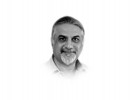The two approaches to the Afghanistan problem
Currently, two different approaches are being pursued to find a solution to the Afghan problem. One is global and the other is regional.
The global approach is built around the initial American warning in 2021 to the Taliban that if they returned to power by force in Kabul, they would be accorded a global pariah status. Since then, the United States has built the non-recognition of the Taliban as a credible coercive tool that has universal backing. The idea was to withhold the diplomatic recognition of the Taliban and sustain a consensus on this non-recognition approach to force a behavioural change in the conduct of the Taliban regime. Taliban were expected to deliver at least in four key areas of global concern: respecting human rights, including the rights of women; aligning with global problems; cracking down on terrorism; and forming a more inclusive government. Since 2021, the Taliban considered this approach a non-military intervention and interference by the outside world in its internal matters – something which is tantamount to overstepping their sovereignty. Taliban considered this approach as nothing but a ploy to exclude Afghanistan from the international community. This approach had an opposite effect, and instead of submitting to the global demands, the Taliban regime became more repressive as it became more established in power. Today, there is little doubt that if the goal of the ‘non-recognition approach’ was to bring a behavioural change in the Taliban, then that has not happened, and the approach has clearly failed.
The regional approach to the problem of Afghanistan is being driven by Russia and China, with India joining them closely behind. Both Russia and China........






















 Toi Staff
Toi Staff Sabine Sterk
Sabine Sterk Gideon Levy
Gideon Levy Penny S. Tee
Penny S. Tee Waka Ikeda
Waka Ikeda Mark Travers Ph.d
Mark Travers Ph.d John Nosta
John Nosta Daniel Orenstein
Daniel Orenstein
